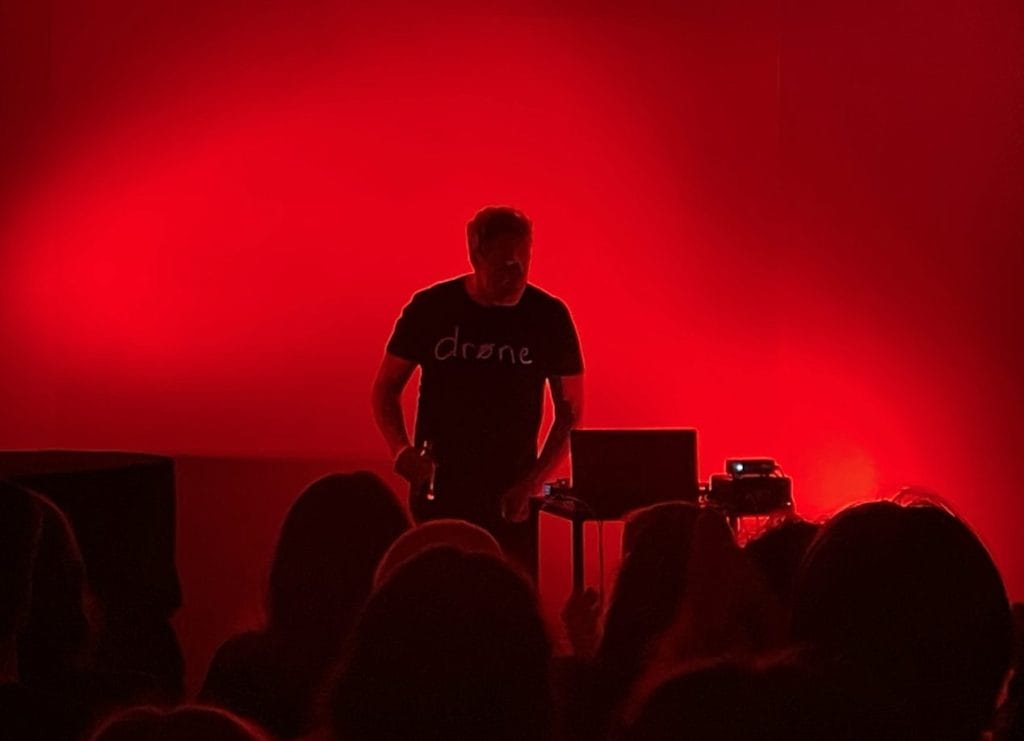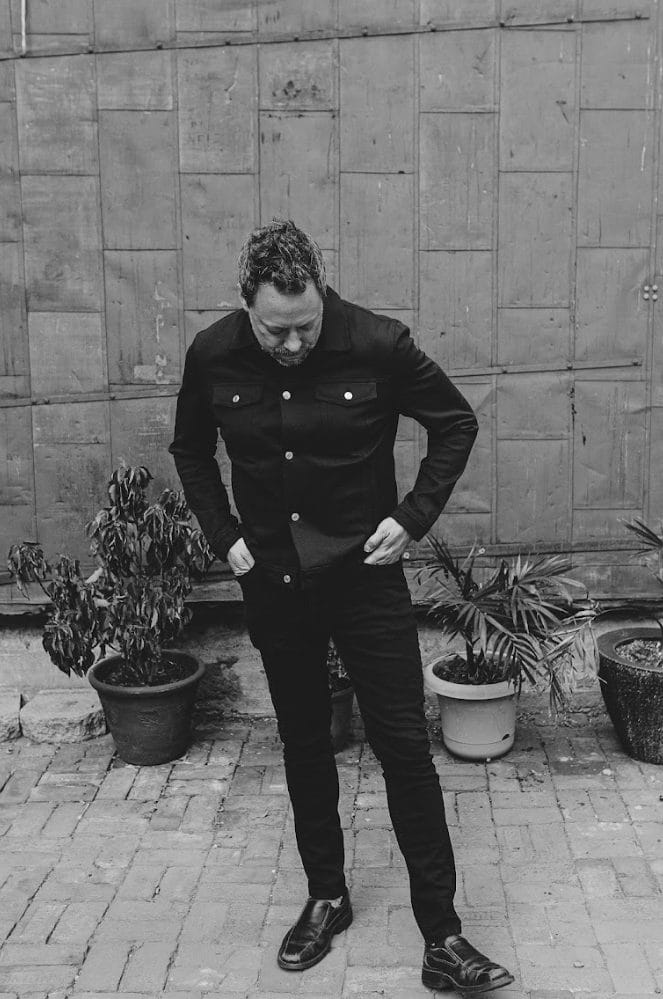
What Having Good Taste Means in 2025, According to Composer Jonathan Thomas Miller
Jonathan Thomas Miller’s new trilogy Environments for a Burning Planet is ambitious and intimate at once — a series of slow-burning, emotionally complex soundscapes that explore both environmental anxiety and artistic restraint. The project unfolds across three volumes this fall, each one building on Miller’s career in film, television, and experimental composition while reaching into deeper, more speculative terrain.
In this interview, Miller reflects on how he’s developed his taste as a composer — not through refining, but through exposure, instinct, and a deep respect for ambiguity. He talks about limiting tools to clarify intent, the balance between influence and instinct, and why confusing an audience can be a sign that something’s working.
It’s a rare look into the mindset of a composer whose work lives outside the usual categories — and who’s not afraid to follow a sound somewhere completely unfamiliar.
What does having good taste mean to you?
Good taste is a kind of emotional guide. It’s not about refinement for its own sake; it’s about the senses— a feeling, a spirit, a moment of risk. Taste is the ability to recognize the power of ambiguity. In 2025, I see good taste as an imperative, since there’s so much material, data, sludge—good taste is the only way to navigate.
Often good taste as a composer is what you leave out—allowing for things to breathe and to be both enough, to limit the means and execution. In a world of composing with infinite choice (and infinite tracks) a contrarian methodology is to compose with as few materials as possible.
All of the collection of Environments for a Burning Planet were made with this in mind—the palette is relatively fixed by if/always statements: “If I have a string line, it’s always buried in this particular reverb.” So, good taste, as a synthesis of my desires and distillation of what I’ve loved, is expressed via technique.
How did you develop your own taste as a producer?
By living inside two worlds at once. In one, I composed fast and clean for television. In the other, my influences have been widely divergent, and I think that’s informed my taste. From discovering Soukous guitar players in the early ’90s to studying at the fringe of microtonal music, I think I’ve got a broad view.
Going deeper, I think I’ve been highly influenced by ideas that became the norm, such as “the studio as instrument.” My taste within that feels attached to ideas around classical orchestration—foreground, mid-ground, and background. And then there’s an overwhelming arc of loving music where I can’t quite decipher the details.
I love that—whether it be languages I don’t understand or not being able to understand a clear instrument, I love the blurring of sound and cultures. Thinking more broadly, maybe it’s from a fundamental belief that music shouldn’t be about reality. The world is full of literal data, and the closer music gets to fully representational, perhaps the less inclined I am to incorporate that into my “taste.”
What’s one influence that’s stuck with you for years?
The idea that sound can be a place. It’s a thread running through artists I love—Sigur Rós, Brian Eno, even Debussy—and through the quiet architecture of good documentaries and film. I keep coming back to it: sound as a place.
When I was growing up in the countryside of Ohio, hearing music on NPR from Africa was transformational. I think music has the power to transport us to different eras, cultures, modalities not yet imagined.
So, place is very important to me. It could be a very abstract place—like the idea of people feeling nostalgic in the future about the planet. This was the basis of the concept of my three volumes: What would music sound like in the future to describe feelings of nostalgia for the loss of the natural world?
Do you intentionally refine your taste or just follow instinct?
Mostly instinct, but it’s an instinct shaped by taste that’s subconscious. I think theory, exposure to different types of music, and daily practice inform that taste. In my best moments, it’s just instinct, and then I can evaluate later. (Best to evaluate taste much later…)
More and more, refining taste is in service of what I’m specifically trying to say. Audience matters here, too—taste is tricky if only I and a small number of other people are within those ideas of taste.
In a way, the role of the artist is to define those for themselves as boldly as possible, and then let others place the music within or without their taste. But it’s important to note that instinct is a distillation to me—composing music intuitively is an expression of accumulated influence and habits.
Really then, taste and instinct are one and the same. One of the biggest motivators for composing is the grace that happens when the instinct creates a perfect alignment with taste.
How do you handle liking music that’s very different from what you make?
I don’t force everything I admire to become part of my own language, but sometimes it leaks in naturally. Liking something wildly different is a bit of a superpower. For example, I can admire the raw nature of a field recording and incorporate that spontaneity and rawness into a very technical and polished piece.
I’m not strict about what I listen to—whatever catches my ear—and many times it’s for entirely different reasons. As a product of conservatories, I’ve spent most of the last 20 years exploring music that’s not only cerebral, but also visceral or physical.
If I’m traveling and hear some reggaeton beat with autotune vocals—on the surface this isn’t my taste, but then I can appreciate the visceral nature of the beat, or the intention of the piece to move the body.
I’ve tried not to be trapped as a composer by making only things like what I would listen to—many film composers also listen to film music, and so there’s a cycle of style. I’ve never been that. Most of the music I listen to is much different than what I make. Even though my music tends to be electronic and abstract, I listen to much music from around the world that appears to be nearly the exact opposite.
So, I handle liking music that’s different from what I make with full embrace.

Have your tastes ever confused your audience?
Often. And I take it as a good sign.
In an upcoming album, it’s basically broken music that sort of works, sort of doesn’t. Certainly my tastes have confused colleagues, as I’m just as likely to wax poetic about some concert piece I heard at Disney Hall played by the LA Phil than I am about some African Blues album.
At a performance in London a few years ago, I played a Soma Pipe and improvised with voice—something I’ve never performed before—so there was some confusion about my intentions there.
I’m very much hoping for both myself and my audience that the upcoming music I’m making—which will be completely different from this collection—will be confusing. To deny change is to die, and these last 5 years have been nothing but change.
I am thankful I have different ideas about what I want composing to evolve to in the next 5 years. Artists that have long-term respect of the audience seem to confuse their audiences periodically. And frankly, I think it’s just a function of not wanting to constantly repeat yourself and find fresh angles.
What’s something you love that no one would expect?
Flight. Not just the idea of flying, but the quiet mechanics behind it. I find poetry in the engines and the cooperation in the logistics that allow us to fly. I recently flew a flight simulator and am in awe of the amount of innovation that has accumulated in order to fly often and safely.
Musically—I think people wouldn’t expect that I love something like Baloji—Belgian/Congolese rap. That’s been some of my favorite pop music of the last few years. I love the combination of African guitars and French rap.
I had listened to those records for a year before I found their videos and realized they were mostly political songs. I also love R&B, the more sultry, the better! And then I don’t think anyone would expect that I love cheesy Bollywood movies—the bigger and more over the top the dance numbers, the better.



